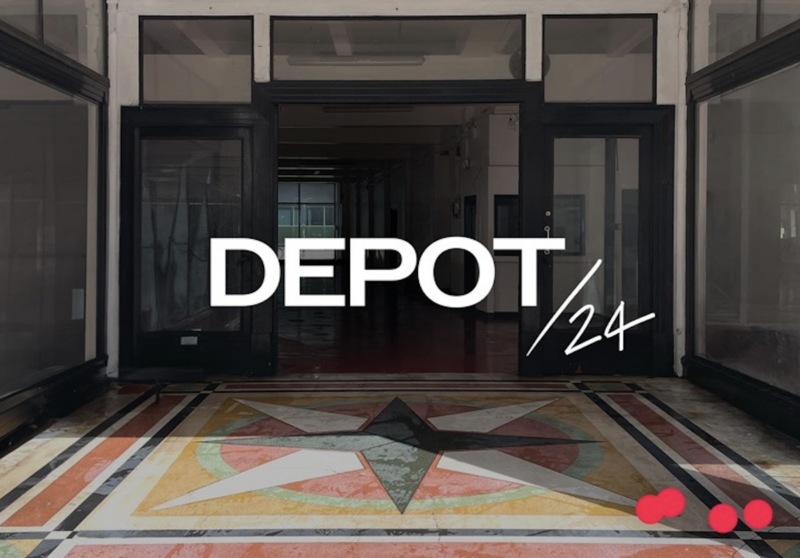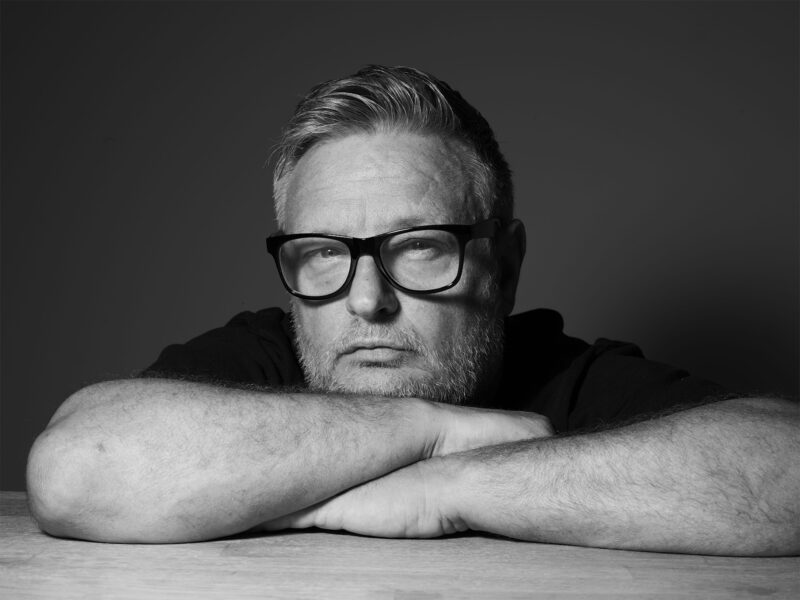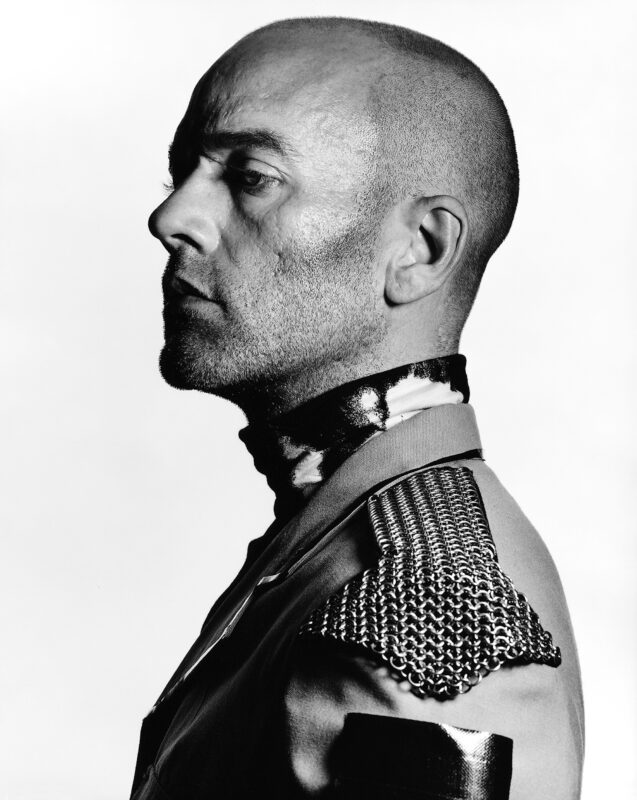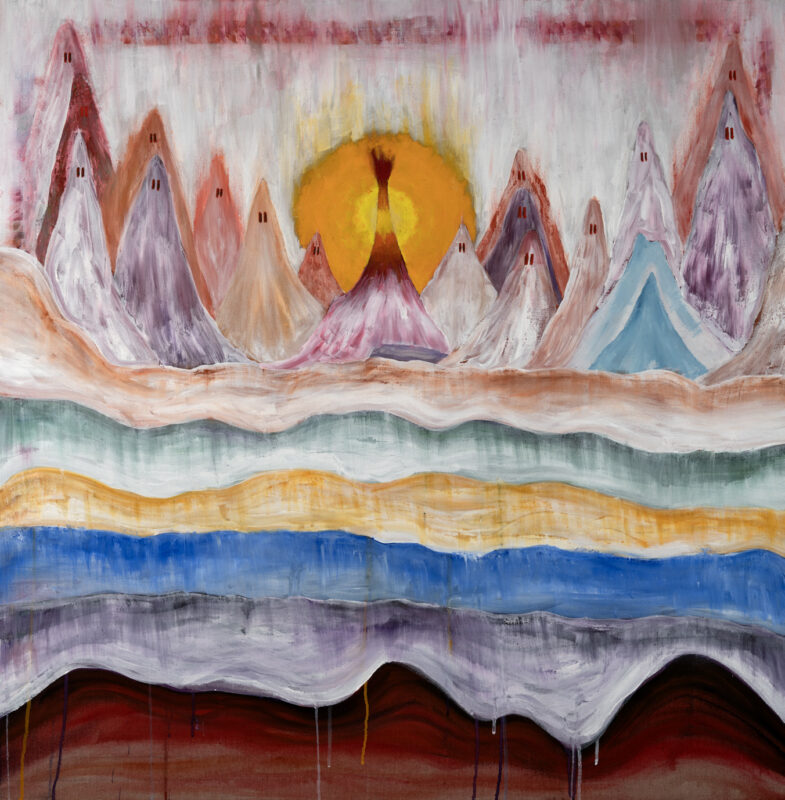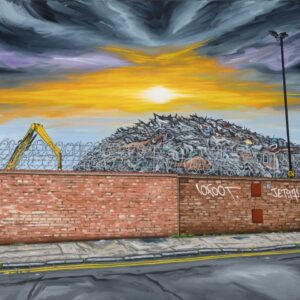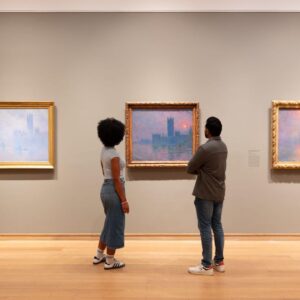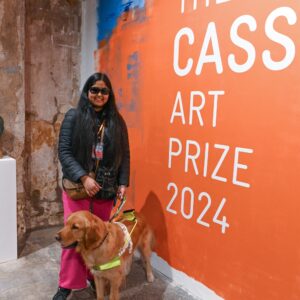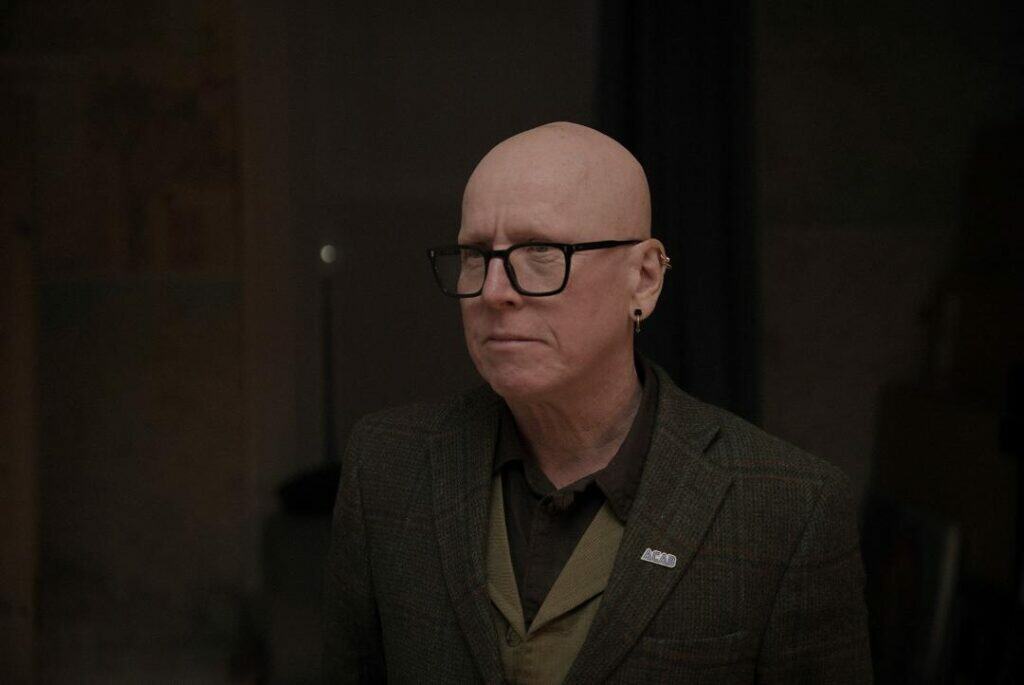
We managed to grab a bit of time with artist Stanley Donwood ahead of his joint exhibition with Thom Yorke to talk friendship, obsolete technology, politics, money and nostalgia.
You and Thom have worked together for a long time. How has this relationship evolved over the years?
I’m not sure it’s evolved, as such. It continues to function.
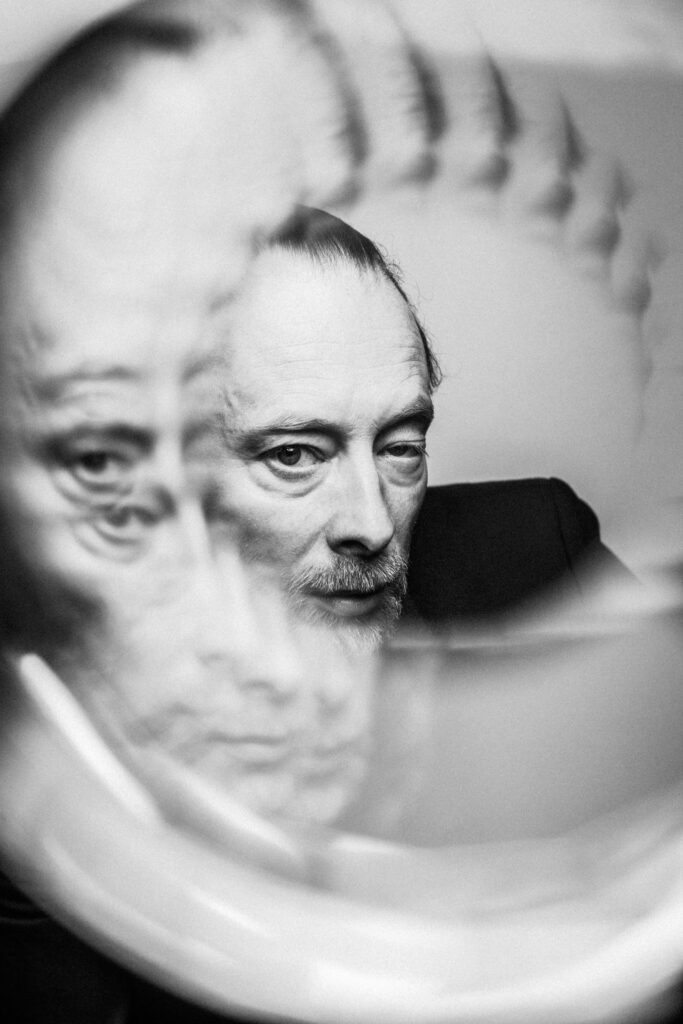
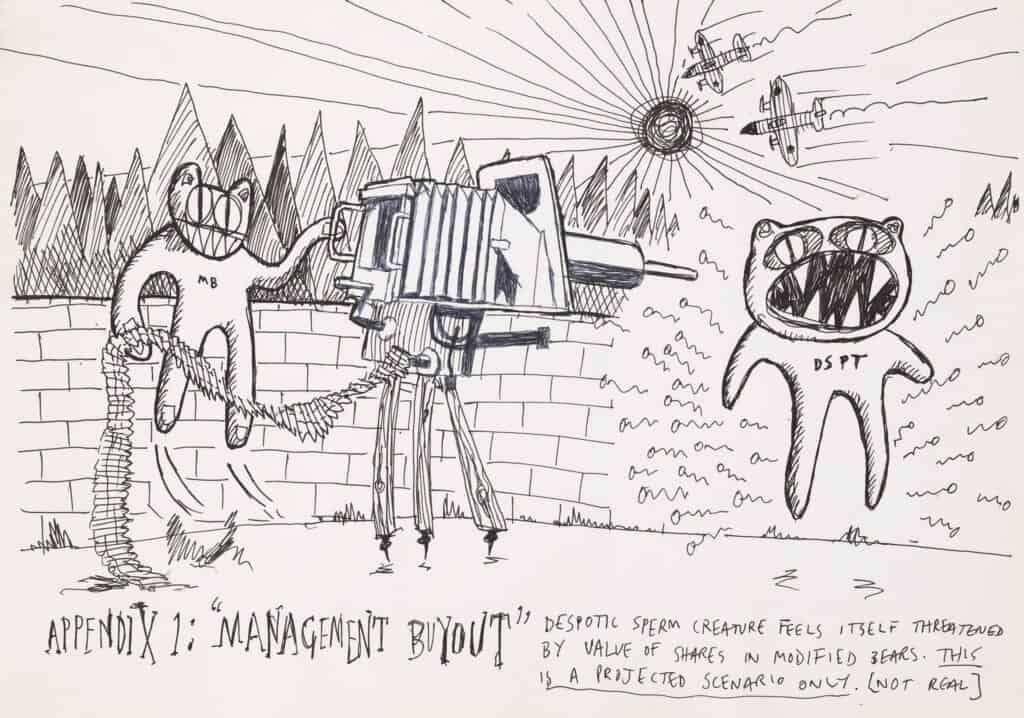
A lot of the drawings are about the perils of business/money/capitalism. Was this purely about the music industry or the wider society at the time?
Definitely the latter; the music industry is just the fraction of late-period Western capitalism that has to do with the promotion and packaging of music. I didn’t know much about the music business anyway, back then. I still don’t, probably because I’ve made some kind of semi-aware decision to ignore it. Thom, I guess, has to deal with it all more directly, but even so, it’s not really a subject for drawing. More a subject for locking in a cupboard and forgetting about. It’s hard now to imagine the atmosphere at the very end of the 20th century. There was no Facebook, no social media, and mobile phones were just telephones with batteries that didn’t need a wire attaching them to the wall, not the pocket computers from the future that we’ve got now. The news was delivered through newspapers or at specific times of the day, not all the time. The Tories were still fucking horrible though, if not quite as pathologically evil as they’ve since become.
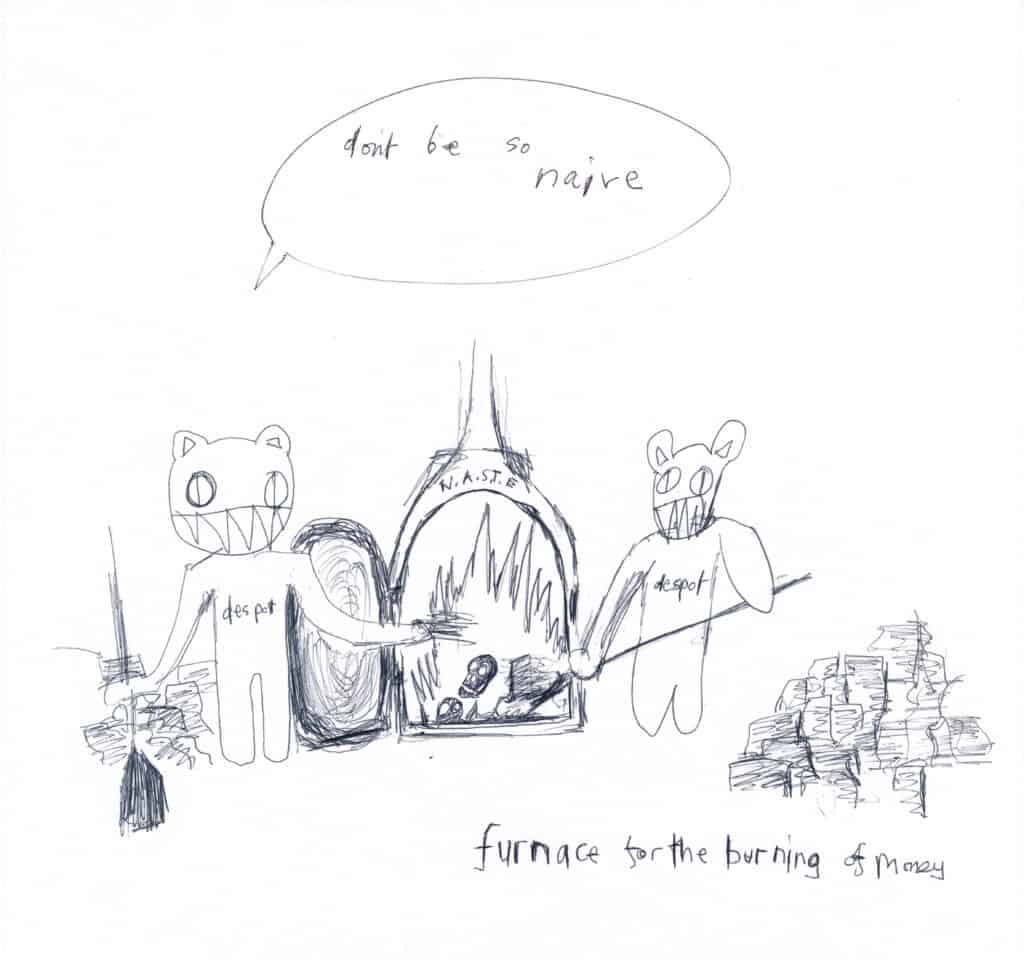
Looking back to the late 90’s early 2000’s when these drawings were made from, a time of War / Covid refugees being sent to Rwanda etc. do those times now seem like a nirvana?
Well, kind of… I guess… but I think that impression could just be due to the gathering forces of nostalgia, processing the past into a kind of selectively-remembered jam that we smear our memories with. You know, the good old days, all that ‘things were better before’ stuff. But it was a time filled with harbingers of what was to come, rinsed with political spin, and all the while there was the grinding, agonising cessation of the wars in what had been known as Yugoslavia, and Putin’s first brutal assault against Chechnya. It wasn’t nirvana, no. Although I’ll concur that certain sections of the media were guilty of spectacular failures of comprehension. With a scanty application of hindsight, everything we are living through now could have been deduced from the materials available at the turn of the centuries, although I doubt that anyone could have foreseen such a completely incomprehensible act of national self-harm as Brexit.
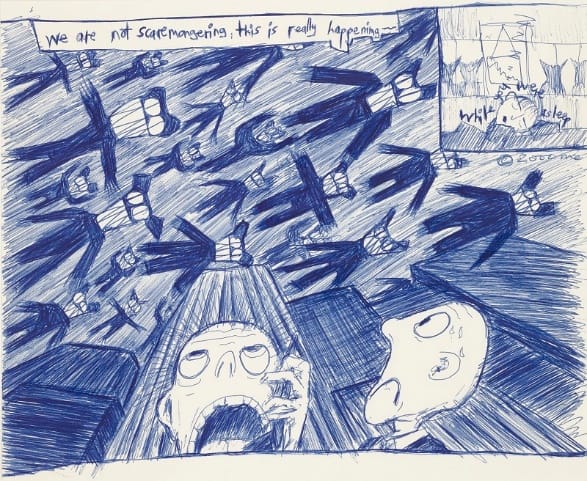
Are you surprised that these drawings between you and Thom have such resonance for other people are so excited by them?
Well, I don’t know. I’ve always been interested by other artists’ sketches and diagrams, all the workings-out and early, imperfect or unfinished versions of more well-known work. It’s like a window opens and inside you can almost see the flow of thought-patterns, how a vague idea solidifies into something more concrete, which then develops a sort of aesthetic strength that almost gives it an independence from its original form. But on the other hand, yeah, I am surprised, because we draw in sketchbooks as a way to formulate vague impressions or fleeting thoughts, and we had definitely no idea, no inkling that twenty years into the future these sketches, ideas and visual explorations would be carefully excised from their bindings, framed and hung in a gallery in Mayfair.
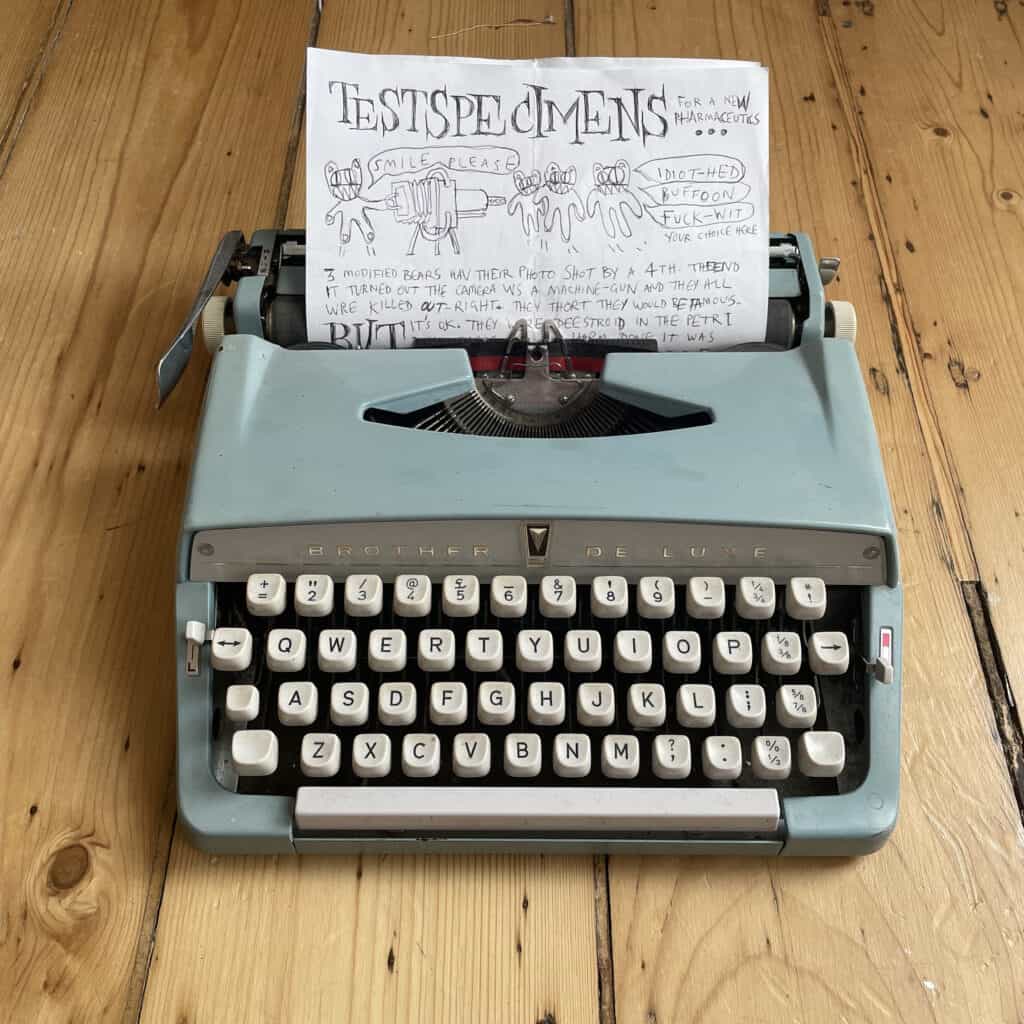
Do you miss the fax machine? Is there something magical about obsolete technology?
Yes, I do miss the fax machine! I loved that technology – I had one at home and one in this little studio that I shared round the back of a pub. There were so many great things about it. You could draw on the thermal paper by holding the end of a lit cigarette close to the surface. You could crumple up photocopies and feed them through, or you could pull the fax paper as it emerged, stretching the contents. The best thing we did with it was when Radiohead released OK Computer, and I put the lyrics to Fitter Happier onto a really long, taped together strip of A4 sheets. Late at night I fed one end into the fax machine, typed in the numbers of loads of music papers and taped the two ends of the strip together into a loop. So the fax never ended. The idea was that in the morning the music press would have nothing received by fax except the words to Fitter Happier using the entirety of their machine’s fax paper roll. I don’t know if it worked. I hope so.
These are 60 drawings from 99-2001, do you still share drawings with Thom? How many more are there?
Oh yes. We have a lot of sketchbooks.
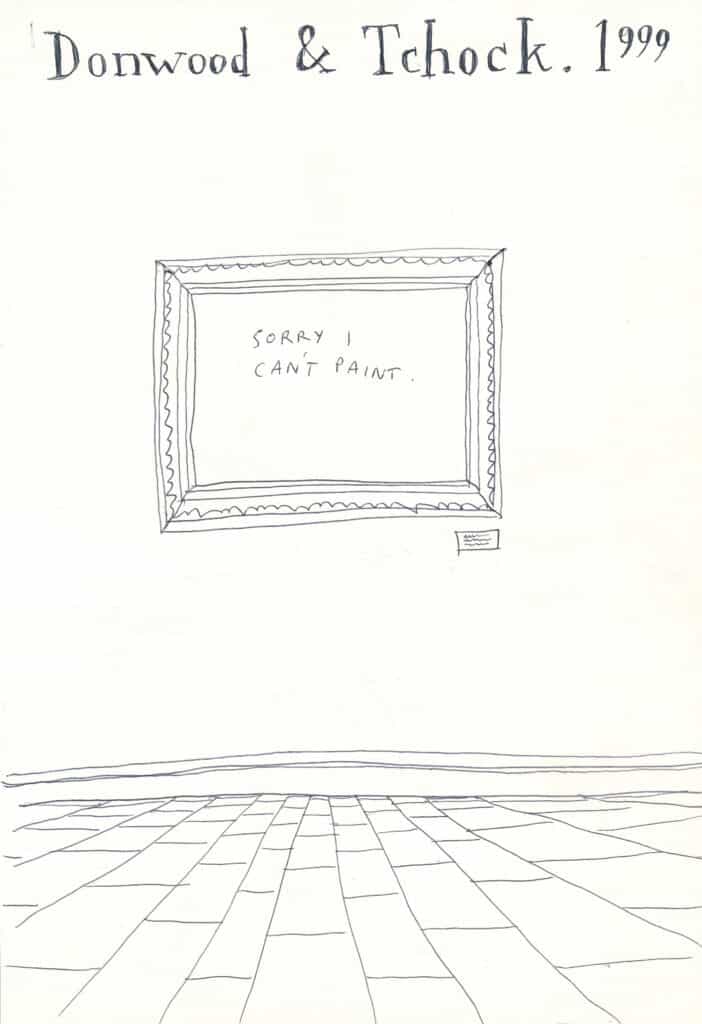
TEST SPECIMENS is presented by TIN MAN ART 8 Duke Street St James, London SW1Y 6BN
Public Opening Hours (advance booking required): Weds 25th May- Sat 28th May, 10am – 6pm + Sun 29th May, 11am – 4pm To book or to make enquiries please visit: tinmanart.com
